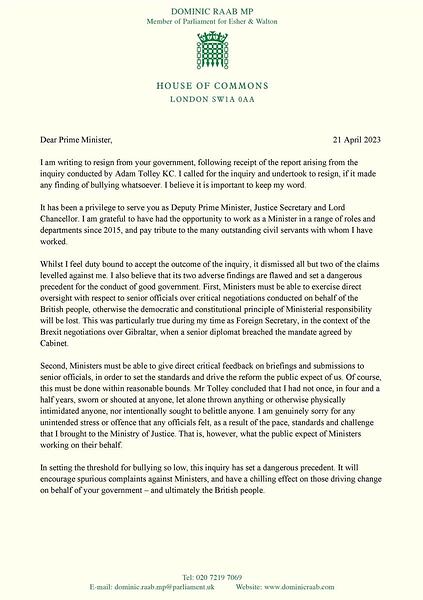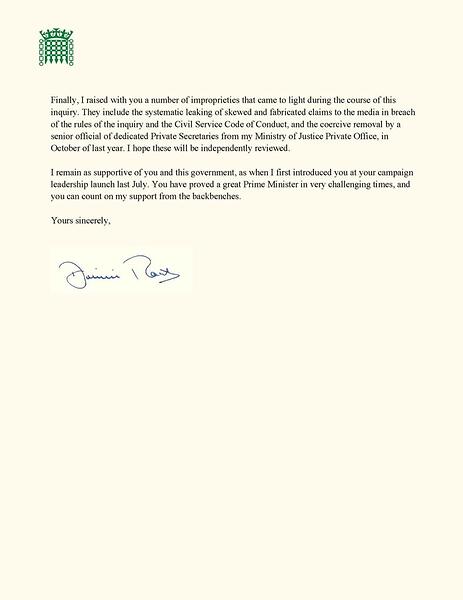Dominic Raab has faced more ministerial fluctuations than most: sacked, demoted or resigning from three government jobs. One of the curiosities of Raab’s various rises and falls has been that his seemingly default abrasive manner has never really been in doubt, or even contested. The question was just whether or not this was seen as a net positive.
Arriving in parliament in 2010 aged just 36 with a healthy majority in his home counties constituency of Esher and Walton, Raab was immediately among the more prominent of the new Tory intake. He was among five Tory MPs, also including Liz Truss and Kwasi Kwarteng, to contribute essays to Britannia Unchained, a 2012 book that set out how to save the UK from perceived mediocrity through free markets, low regulation and a renewed sense of right-wing bullishness.
Raab had by then already come to the attention of colleagues thanks to a 2011 article in which he argued that men were “getting a raw deal” in society, labelling feminists as “amongst the most obnoxious bigots”.
Among those to notice was Theresa May, the then home secretary and also minister for women. She was unimpressed, which was seen as a factor in Raab’s slow progression to even a junior ministerial post, only attained after the 2015 election.
Even then progression was not smooth. A year as a justice minister came to an end when May succeeded David Cameron, and Raab languished on the backbenches again.
May decided to return him to government in 2017 as Brexit secretary, he but resigned months later, in November 2018, over her proposed Brexit deal.
Even now, hints about Raab’s character and approach were emerging. He insisting on an inflexible schedule including daily gym time and insisting on being fetched an identical Pret a Manger lunch every day - a former staffer told a reporter she found him “very dismissive” to women.
Under Johnson, Raab reached his ministerial pinnacle: foreign secretary and deputy prime minister, but his apparent lack of flexibility was about to cause even greater difficulties.
In August 2021, as Kabul fell to the Taliban, Raab resisted calls to return from a family holiday in Crete to oversee the crisis. Once eventually back in London he reportedly held up work on evacuations by requesting documents be presented to him in a specific format. The political damage was grave, and a month later he was demoted by Johnson to justice secretary, although keeping the now largely courtesy role of deputy PM.
On Johnson’s exit, Raab returned to the backbenches yet again, until Truss’s demise, when Sunak restored Raab to his old jobs. But within weeks of his return, reports began to emerge of complaints about Raab’s manner and behaviour in all the government departments he had headed, spanning several years and at least two dozen different officials.
The verdict has now gone against Raab, and an even more definitive one could follow. When he first took his Esher and Walton seat, Raab’s majority was more than 18,000. In 2019 it was below 3,000, with the Liberal Democrats closing fast. Subsequent demographic changes have pushed ever more ex-Londoners into the Surrey seat and it is now one of the Lib Dems’ main targets. The label of a bully will not help. A political end looms.
As Gary Strang might, perhaps, say “Now, I’m no psychologist, Tony, as you know, but it occurs to me that Raab is a bit of a psycho …  ”
”
![]()
![]()
![]()




